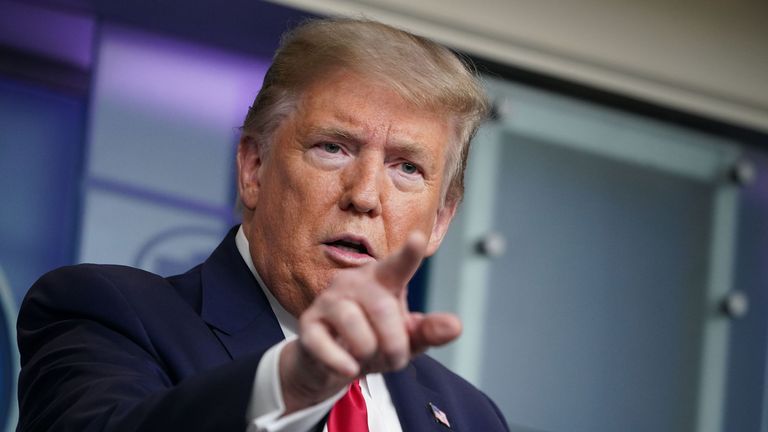Trump approves sale of missile, torpedoes to India worth $155 million
Tue 14 Apr 2020, 16:27:48

The Trump Administration on Monday notified the Congress of its determination to sell Harpoon Block II air launched missiles and lightweight torpedoes worth USD155 million to India.
The sale of 10 AGM-84L Harpoon Block II air launched missiles is estimated to cost USD92 million, while 16 MK 54 All Up Round Lightweight Torpedoes and three MK 54 Exercise Torpedoes are estimated to cost USD63 million, the Defense Security Cooperation Agency said in two separate notifications to the Congress.
An assurance right now as of late made by the US State Department following a solicitation for these two military equipment made by the Indian Government,
As per the Pentagon, the Harpoon rocket framework will be incorporated into the P-8I airplane to direct enemy of surface fighting missions with regards to basic ocean paths while upgrading between operability with the United States and other associated powers.
"India will utilize the upgraded capacity as an obstruction to local dangers and to fortify its country barrier. India will have no trouble retaining this hardware into its military," the Pentagon said.
While the
Harpoon rockets will be fabricated by Boeing, the torpedoes would be provided by Raytheon, the warning said.
Harpoon rockets will be fabricated by Boeing, the torpedoes would be provided by Raytheon, the warning said.
The proposed deal, it stated, will improve India's ability to meet present and future dangers from adversary weapon frameworks. The MK 54 Lightweight Torpedo will give the capacity to lead hostile to submarine fighting missions.
“India will use the enhanced capability as a deterrent to regional threats and to strengthen its homeland defense. India intends to utilize MK 54 Lightweight Torpedoes on its P-8I aircraft. India will have no difficulty absorbing these systems into its armed forces," it said.
In both the notifications, the Pentagon said that the proposed sale of these equipment and support will not alter the basic military balance in the region.
According to the Pentagon, this proposed sale will support the foreign policy and national security of the United States by helping to strengthen the US-Indian strategic relationship and to improve the security of a major defensive partner, which continues to be an important force for political stability, peace, and economic progress in the Indo-Pacific and South Asia region.
No Comments For This Post, Be first to write a Comment.
Most viewed from International
Most viewed from World
AIMIM News
Latest Urdu News
Most Viewed
May 26, 2020
Do you think Canada-India relations will improve under New PM Mark Carney?
Latest Videos View All
Like Us
Home
About Us
Advertise With Us
All Polls
Epaper Archives
Privacy Policy
Contact Us
Download Etemaad App
© 2025 Etemaad Daily News, All Rights Reserved.

.jpg)
.jpg)
.jpg)






.jpg)


.jpg)
.jpg)
.jpg)
.jpg)
.jpg)
.jpg)
.jpg)
.jpg)
.jpg)
.jpg)
.jpg)
.jpg)

















